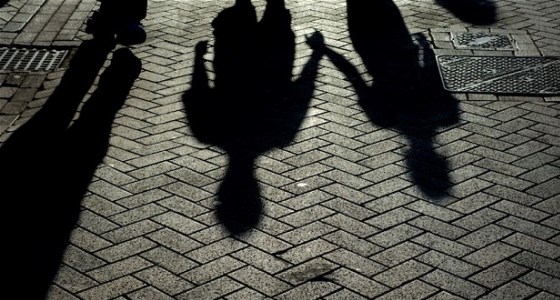I'm hurt all the time.
I don't want to cry for the way I feel inside.
I just want someone to hold me...
I'm alone in the dark, please try to find me.
Chula
Photo: ALAMY
Some people brought their children to Jesus so that he could bless them by placing his hands on them. But his disciples told the people to stop bothering him. When Jesus saw this, he became angry and said, “Let the children come to me! Don’t try to stop them. People who are like these little children belong to the kingdom of God. I promise you that you cannot get into God’s kingdom, unless you accept it the way a child does.” Then Jesus took the children in his arms and blessed them by placing his hands on them. Mark 10: 13-16
What does it mean to ‘accept God’s kingdom the way a child does’?
We begin our life before birth in union with our mother’s body: her lifeblood keeps us alive.
When we are born, that same sense of oneness or unity usually continues with the people around us who provide for our basic human needs. There are no boundaries: all is taken and held as it is and the infant lives almost entirely in the present moment without regret for the past or fear of the future. However, too soon, boundaries get established and our understanding of the world around us gets divided up and separated out into good or bad, right or wrong, male or female, rich or poor, worthy or unworthy. But one day, we might emerge from Plato’s cave, and 'become awake' to the false reality of illusory boundaries and begin the long journey ‘back home’ into that original whole ness. It is the place where there is an integration of the self within together with integrity with the outer world; where there is a ‘heart-knowing’ that we are all connected and everything and everyone belongs; where the Kingdom of Heaven is now, on this earth amongst these people.
But what about the children on the margins of society?
Is the relative ease or difficulty of that journey ' back home' somehow related to the way in which one was nurtured in wholeness as a child i.e., allowed to simply ‘be a child’ and made to feel worthy with a sense of belonging? What about the children who have been born into families where addictions, abuse and violence have been a part of their daily life since they were born? What about the child soldiers and the street children? What does ‘back home’ look like for them?
As a member of the Children’s Panel in West Lothian and a volunteer at a residential school for children with complex emotional and behavioural needs, the vulnerable children I encounter are the outcasts in our society: for many reasons, their parents were unable to nurture them, to provide for their wellbeing or to protect them from emotional abuse and/or physical violence. For some, a series of foster careers were subsequently unable to manage their difficult behavior and the schools were unable to cope with them. Outwardly, they are labeled ‘trouble-makers’ and excluded from society. But inwardly, they feel rejected, unworthy and uncared about; 'unconditional love' has never been part of their vocabulary. Who will accompany them on their painful and difficult journey when ‘home’ is synonymous with suffering? Who will pick up the pieces along the way? What will we do when we meet them on our own journey ‘back home’? Will we hold their hand?
Nancy Adams
